Roth & Traditional IRAs
An IRA is an investment account that belongs to you, to which you contribute. It can consist of stocks, mutual funds, bonds, annuities, certificates or other investment products. Gains grow tax deferred until they’re distributed. In some cases, they’re not taxed at all. Meet with one of our representatives to explore the features of both a Roth and Traditional IRA to see if an IRA is right for you.
401(k)s
Do you have dollars from a former job sitting in an account with your former employer? We can educate and help you understand your options for those accounts, including whether it makes sense to leave it in your employer’s plan, move it to a new employer plan, withdraw the funds or roll it over to an IRA.
Types of plans we can assist you with are shown in the table:
| Pensions | PERS | |
| 401(k) | TERS | |
| 401(k) | SERS | |
| 403(b) | FERS | |
| TSA | SEP IRAS | |
| 401(a) | SIMPLE IRAS | |
| 457 | TSP | |
| Defined Benefit Plans | Deferred Compensation Plans |

Mutual Funds
With mutual funds, investors pool their money into a portfolio of securities that is typically diversified and professionally managed. This gives ordinary Americans access to professional fund managers. These mutual fund managers decide the best time to buy and sell providing you the expertise of investment professionals. Funds are aggressive, conservative and places in between.*
*Investing in mutual funds involves risk, including possible loss of principal. Fund value will fluctuate with market conditions and it may not achieve its investment objective.Managed Accounts
Managed accounts are portfolios designed for individuals to match their specific financial needs with portfolio objectives, and managed by professional investment managers. Advisors have a fiduciary obligation with fee-based advisory accounts. Often these accounts offer an avenue for individuals to access investment managers that are generally available only to institutional-level investors.
Managed account portfolios come in many different structures. Some are for conservative investors, some for more assertive investors and some for those in between. Some portfolios focus on tax managed investing and others on growth investing with less regard for tax consequences. Some portfolios are more focused on generating income and others on growth.
Portfolio holdings can consist of institutional class mutual funds, exchange traded funds or even individual securities.
The benefit to managed accounts? They are highly diversified and professionally managed – so you can have more confidence because investment professionals are overseeing your portfolio.
Annuities
Annuities are contracts backed by an insurance company that can protect you against risks such as outliving your assets. They are designed for more conservative investors. There are fixed, index, income and variable annuities, each with their own benefits and risks.
Fixed and variable annuities are suitable for long-term investing, such as retirement investing. Gains from tax-deferred investments are taxable as ordinary income upon withdrawal. Guarantees are based on the claims paying ability of the issuing company. Withdrawals made prior to age 59 ½ are subject to a 10% IRS penalty tax and surrender charges may apply. Variable annuities are subject to market risk and may lose value.

Stocks & Bonds
Stocks and bonds can range from conservative to ultra aggressive.
When you invest in individual stocks, you become a part owner of the business, with all the ups and downs. You can vote at shareholder meetings and receive profits allocated to owners. You may get very high returns, but you may also lose money.
Bonds, on the other hand, are an agreement to loan money to a company or government in return for regular payments. While stocks fluctuate, bonds are often less risky, however they are subject to market and interest rate risk if sold prior to maturity. Bond values will decline as interest rates rise and bonds are subject to availability and change in price.
Securities and advisory services are offered through LPL Financial (LPL), a registered investment advisor and broker-dealer (member FINRA/SIPC). Insurance products are offered through LPL or its licensed affiliates. Horizon Credit Union and Horizon Retirement & Investments are not registered as a broker-dealer or investment advisor. Registered representatives of LPL offer products and services using Horizon Retirement & Investments and may also be employees of Horizon Credit Union. These products and services are being offered through LPL or its affiliates, which are separate entities from, and not affiliates of, Horizon Credit Union and Horizon Retirement & Investments. Securities and insurance offered through LPL or its affiliates are:
Horizon Credit Union provides referrals to financial professionals of LPL Financial LLC (“LPL”) pursuant to an agreement that allows LPL to pay Horizon Credit Union for these referrals. This creates an incentive for Horizon Credit Union to make these referrals, resulting in a conflict of interest. Horizon Credit Union is not a current client of LPL for advisory services.
Please visit https://www.lpl.com/disclosures/is-lpl-relationship-disclosure.html for more detailed information.
LPL Financial Form CRS

